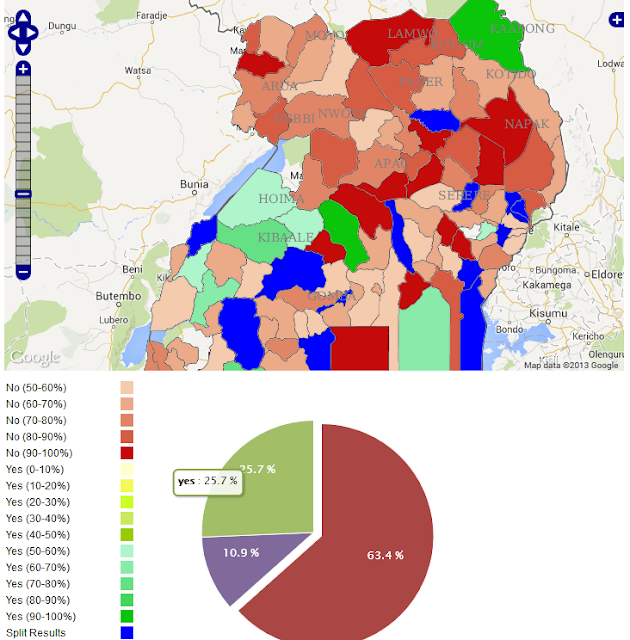Here is how UNICEF Draws on IBM Analytics to Give a Voice to Youth in Africa.
We are
in Uganda and somewhere else where, the U.S. Fund for UNICEF announced a
collaboration with UNICEF Uganda on U-report.
The goal is to provide a free SMS-based reporting tool that allows Ugandan
youth to communicate with their government and community leaders using their
cell phones.
Connectikpeople may recall that, launched in 2011, U-report began as a grassroots text-messaging
system that conducts weekly polls for youth to share
observations/opinions and speak out on issues affecting their lives. To date,
more than 240,000 young adults in Uganda have joined the program. In addition
to responding to surveys, Connectikpeople has observed that, U-reporters send
in ‘unsolicited’ text messages, hoping to be heard on topics ranging from
health, education and
gender-based violence.
In October 2013, UNICEF receives an average of 170,000 text messages per
month. Approximately 20,000 of these are unsolicited messages and initial
analysis suggested that seven percent of these require immediate action from
community leaders or the government.
Since February 2013, U-report uses text analytics and
machine learning technologies from IBM
Research to help deal with the flood of information by automating the
classification of messages. UNICEF Uganda and IBM Research deployed A-Class, a
text classification system trained to understand the content of the text
messages and analyzes the data much faster, and with much more accuracy.
For example, in May 2013, messages on what was confirmed to be flooding in
the Kasese district of Uganda were identified in real time, allowing accurate
and official information to be sent to relief workers and other partners who
were able to respond to the disaster quickly.
Connectikpeople also observed that as part of its further adoption, A-Class
has the potential to help UNICEF Uganda pinpoint issues that might not
immediately get picked up among the thousands of incoming messages, as well
All 386 Members of Parliament in Uganda are now subscribed to U-report and
through this system they receive SMS updates on reports pertaining to key
issues in their districts.
The A-Class text classification model was developed by IBM Research using a
combination of supervised machine learning, the latest advances in text mining
and keyword matching. The objective of the model is to classify each
incoming text message into one of 12 UNICEF message categories , this
classification task is particularly challenging given the brevity and frequent
misspellings in SMS text messages.
Based on the success of the U-report program in Uganda, UNICEF has launched
it in Zambia, Burundi and South Sudan, with a roll out expected in the
Democratic Republic of Congo. The technology collaboration with IBM will also
continue to explore how to automatically assign action status to messages,
making the system portable in other countries and understanding how the system
could be implemented in non-English environments.
U-report relies on RapidSMS, an open source software framework that works
with any cell phone on the market, enabling UNICEF to connect with communities
using a low-cost and popular device. Results from U-report surveys are
publicized via the Polls Results section of
the web site, and messages classified by A-Class are captured in real-time and
displayed on the National Pulse page,
allowing the public to visualize what issues are trending within each district
in Uganda. Reports are also shared with government officials via newsletters
and national media channels to ensure decision makers have access to
information regarding their
districts.


